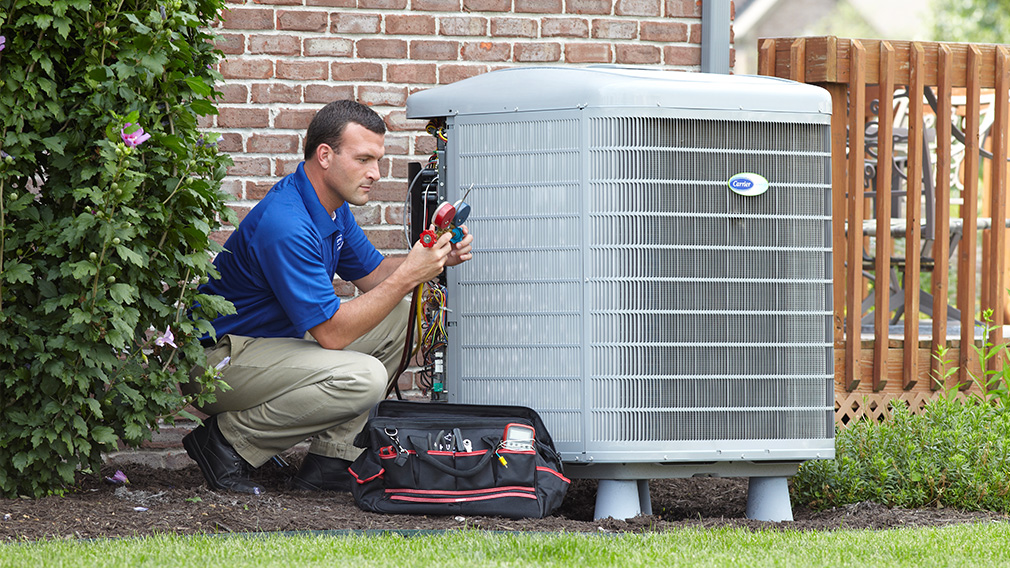Regarding home comfort, few systems are as vital as your HVAC system. Comprehending what HVAC is can be the initial step towards ensuring a comfortable domestic atmosphere all year long. Whether you're facing the chilly winters or the oppressive summer heat, having a dependable heating and cooling system is essential for preserving an pleasant indoor atmosphere. In this article, we will delve into everything you need to know about HVAC systems, from their core functions to common issues that could happen and how to successfully address them.
A lot of homeowners might be inclined to handle HVAC repairs on their own, especially when faced with small issues or regular maintenance needs. Yet, discerning when to make a DIY attempt and when to call on a professional can allow you to avoid both time and money. We will explore some of the prevalent HVAC issues, provide tips for maintaining your system's efficiency, and emphasize the value of expert assistance in certain situations. By the end of this guide, you will have greater confidence in handling your HVAC system while understanding when to reach out to the experts.
Comprehending HVAC Systems
Heating, Ventilation, and Air Conditioning is an acronym for Heating, Ventilation, and Air Conditioning, which plays a vital role in maintaining indoor coziness in residences and commercial spaces. These systems are designed to control temperature and ventilation, making sure that environments remain pleasant regardless of outdoor conditions. A basic HVAC system usually includes elements such as a furnace for heating, an air conditioner for cooling, and a fresh air exchange system to circulate air and renew indoor atmospheres.
The operation of these systems is founded on the concepts of thermodynamics and airflow dynamics. Heating is achieved through different methods, such as gas, electricity, or oil, while cooling is mostly achieved through coolants circulating in the system. Ventilation ensures clean air enters a space while expelling stale air, which is essential for comfort and health. Comprehending how these components work in unison can help homeowners effectively manage their systems and spot problems early on.
Routine service and knowledge of how to manage HVAC can lead to enhanced efficiency and extended lifespans. Easy actions such as changing air filters frequently, ensuring vents open, and scheduling professional check-ups can greatly enhance system performance. By comprehending the principles of heating and cooling, people can make educated decisions about their heating and cooling needs, contributing to a more enjoyable and energy-efficient living space.
Typical HVAC Issues and Resolutions
One of the more frequent problems homeowners face is a lack of heating or air conditioning. This issue can arise from multiple sources, such as a clogged air filter, which limits airflow and reduces the HVAC system's efficiency. To fix this, regularly examine and swap air filters every two to three months, depending on how often it's used. Additionally, inspecting the thermostat settings and confirming that the unit is set to the correct temperature can aid alleviate the problem. If issues remain, it may be required to inspect for refrigerant leaks or reach out to a specialist.
Another common problem is strange noises coming from the HVAC system, such as banging, whistling, or grating sounds. These noises can signal unsecured parts, worn-out bearings, or problems with the compressor. Homeowners can initiate by tightening loose components and confirming that all access panels are securely in place. If the noises continue, it might be necessary to consult an HVAC technician to diagnose and resolve any underlying mechanical issues.
Lastly, inconsistent temperatures across the home can be a frustrating problem. This can stem from inadequate insulation, blocked vents, or issues with the ductwork. To enhance airflow, make sure that vents are not cluttered by furniture or any obstacles. Fixing any leaks in ductwork can also encourage more consistent heating and cooling. For more serious airflow issues or ongoing discomfort, it may be advisable to seek the advice of a technician to evaluate and improve the overall HVAC system and home insulation.
Energy Efficiency and Maintenance Tips
To improve the performance of your HVAC system, consider investing in a digital thermostat. Such devices allow you to program specific levels for different times of the day, optimizing energy use while maintaining comfort. For example, you can configure your thermostat to lower heating or cooling when you are not home, thus conserving energy and cutting your utility bills.

Routine maintenance is crucial for keeping your HVAC system running efficiently. Schedule seasonal tune-ups to ensure that all components are in good working order. During these maintenance sessions, professionals can clean coils, inspect ducts, and replace filters, which helps stop larger issues down the line. Additionally, change your air filters every one to three months to support airflow and enhance indoor air quality, directly impacting the efficiency of your system.
Be mindful of your HVAC system's insulation and sealing. https://phillips-crawford.federatedjournals.com/the-overall-cost-of-heating-ventilation-and-air-conditioning-what-should-allocate-funds-for are sealed properly to prevent air leaks and evaluate adding insulation to spaces such as the attic and walls to keep energy costs down. Enhancing your home’s insulation helps your HVAC system operate less strenuously to keep the set temperature, which leads to overall energy savings. Regularly inspect and monitor areas around your home to create a comfortable and energy-efficient living environment.
